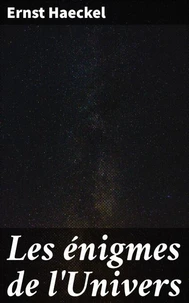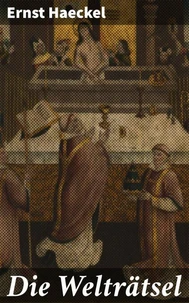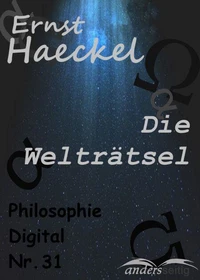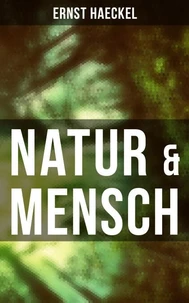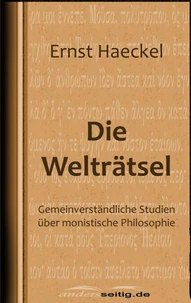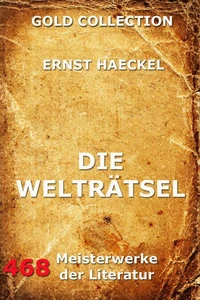The Last Link: Our Present Knowledge of the Descent of Man. Unveiling the Origins of Humankind: A Evolutionary Journey through Time
Par :Formats :
Disponible dans votre compte client Decitre ou Furet du Nord dès validation de votre commande. Le format ePub est :
- Compatible avec une lecture sur My Vivlio (smartphone, tablette, ordinateur)
- Compatible avec une lecture sur liseuses Vivlio
- Pour les liseuses autres que Vivlio, vous devez utiliser le logiciel Adobe Digital Edition. Non compatible avec la lecture sur les liseuses Kindle, Remarkable et Sony
 , qui est-ce ?
, qui est-ce ?Notre partenaire de plateforme de lecture numérique où vous retrouverez l'ensemble de vos ebooks gratuitement
Pour en savoir plus sur nos ebooks, consultez notre aide en ligne ici
- Nombre de pages421
- FormatePub
- ISBN406-4-06-623488-1
- EAN4064066234881
- Date de parution06/12/2019
- Protection num.Digital Watermarking
- Taille837 Ko
- Infos supplémentairesepub
- ÉditeurGOOD PRESS
Résumé
In "The Last Link: Our Present Knowledge of the Descent of Man, " Ernst Haeckel presents a compelling synthesis of contemporary scientific exploration pertaining to human evolution. Written in the late 19th century, the book adopts an engaging narrative style that intertwines scientific inquiry with philosophical reflection, showcasing Haeckel's profound understanding of biology and comparative anatomy.
Haeckel's vivid illustrations, meticulously detailed, serve not only to complement his arguments but also to invite readers into the fascinating world of the phylogenetic tree, where flora and fauna connect through evolutionary ancestry, thus positioning humanity within a broader natural context. Ernst Haeckel, a prominent biologist and a staunch supporter of Darwinian evolution, was influenced by both his scientific training and the burgeoning discourse on evolutionary theory during his time.
As a pioneer in the field of ecology and a prolific naturalist, Haeckel's writings reflect the intellectual zeitgeist of the era, characterized by a profound curiosity about humanity's place in nature. His contentious ideas often challenged traditional religious viewpoints, indicating a brave struggle to reconcile science and belief. For those interested in the intersections of biology, philosophy, and the history of science, Haeckel's "The Last Link" remains an indispensable read.
It not only elucidates the complexities of human descent but also serves as a reflection on the discourse surrounding evolution, challenging readers to reconsider their understanding of humanity and its relation to the natural world.
Haeckel's vivid illustrations, meticulously detailed, serve not only to complement his arguments but also to invite readers into the fascinating world of the phylogenetic tree, where flora and fauna connect through evolutionary ancestry, thus positioning humanity within a broader natural context. Ernst Haeckel, a prominent biologist and a staunch supporter of Darwinian evolution, was influenced by both his scientific training and the burgeoning discourse on evolutionary theory during his time.
As a pioneer in the field of ecology and a prolific naturalist, Haeckel's writings reflect the intellectual zeitgeist of the era, characterized by a profound curiosity about humanity's place in nature. His contentious ideas often challenged traditional religious viewpoints, indicating a brave struggle to reconcile science and belief. For those interested in the intersections of biology, philosophy, and the history of science, Haeckel's "The Last Link" remains an indispensable read.
It not only elucidates the complexities of human descent but also serves as a reflection on the discourse surrounding evolution, challenging readers to reconsider their understanding of humanity and its relation to the natural world.
In "The Last Link: Our Present Knowledge of the Descent of Man, " Ernst Haeckel presents a compelling synthesis of contemporary scientific exploration pertaining to human evolution. Written in the late 19th century, the book adopts an engaging narrative style that intertwines scientific inquiry with philosophical reflection, showcasing Haeckel's profound understanding of biology and comparative anatomy.
Haeckel's vivid illustrations, meticulously detailed, serve not only to complement his arguments but also to invite readers into the fascinating world of the phylogenetic tree, where flora and fauna connect through evolutionary ancestry, thus positioning humanity within a broader natural context. Ernst Haeckel, a prominent biologist and a staunch supporter of Darwinian evolution, was influenced by both his scientific training and the burgeoning discourse on evolutionary theory during his time.
As a pioneer in the field of ecology and a prolific naturalist, Haeckel's writings reflect the intellectual zeitgeist of the era, characterized by a profound curiosity about humanity's place in nature. His contentious ideas often challenged traditional religious viewpoints, indicating a brave struggle to reconcile science and belief. For those interested in the intersections of biology, philosophy, and the history of science, Haeckel's "The Last Link" remains an indispensable read.
It not only elucidates the complexities of human descent but also serves as a reflection on the discourse surrounding evolution, challenging readers to reconsider their understanding of humanity and its relation to the natural world.
Haeckel's vivid illustrations, meticulously detailed, serve not only to complement his arguments but also to invite readers into the fascinating world of the phylogenetic tree, where flora and fauna connect through evolutionary ancestry, thus positioning humanity within a broader natural context. Ernst Haeckel, a prominent biologist and a staunch supporter of Darwinian evolution, was influenced by both his scientific training and the burgeoning discourse on evolutionary theory during his time.
As a pioneer in the field of ecology and a prolific naturalist, Haeckel's writings reflect the intellectual zeitgeist of the era, characterized by a profound curiosity about humanity's place in nature. His contentious ideas often challenged traditional religious viewpoints, indicating a brave struggle to reconcile science and belief. For those interested in the intersections of biology, philosophy, and the history of science, Haeckel's "The Last Link" remains an indispensable read.
It not only elucidates the complexities of human descent but also serves as a reflection on the discourse surrounding evolution, challenging readers to reconsider their understanding of humanity and its relation to the natural world.




